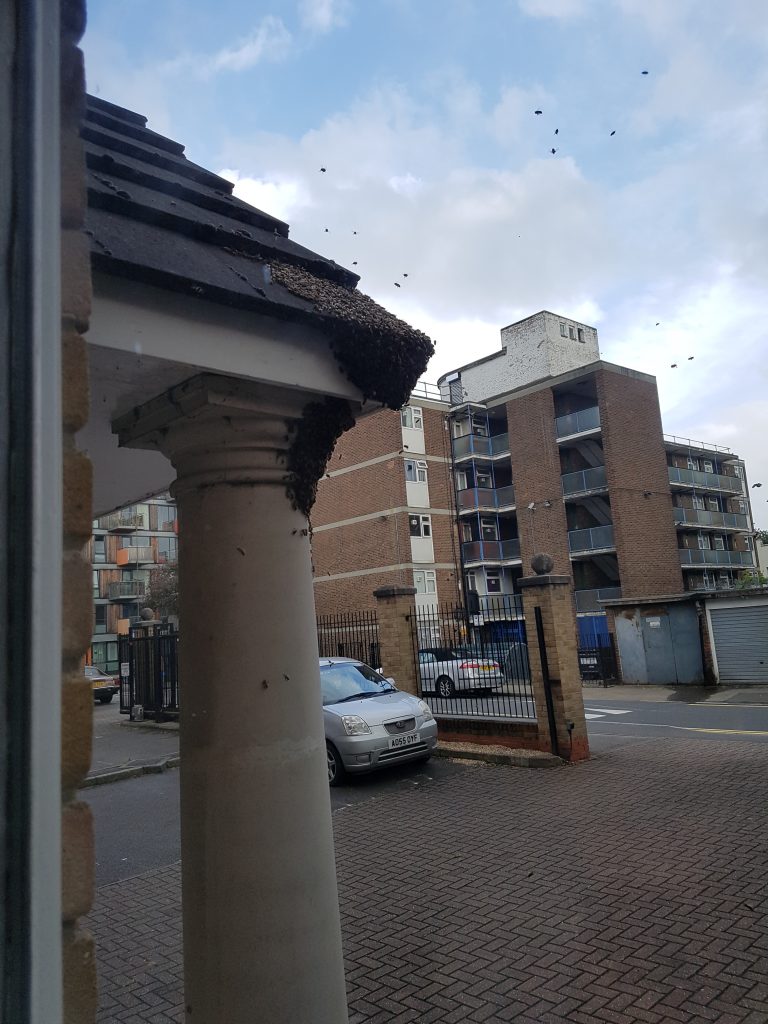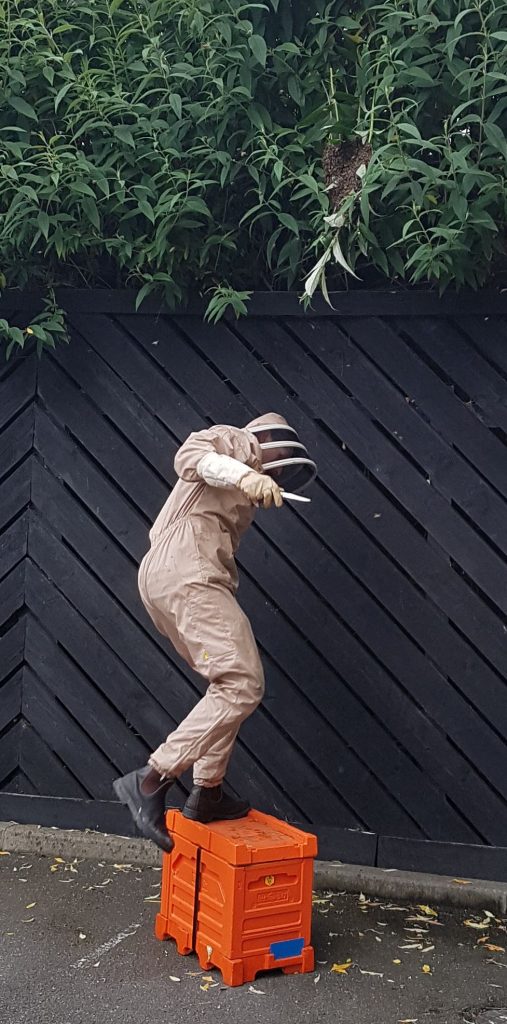
Tusser’s ‘Five Hundred Points of Good Husbandry’ published 1573 suggests we should:
‘take heed to thy Bees, that are ready to swarm, the loss thereof now, is a crown’s worth of harm.’ The loss was particularly hard in May or June as the country verse tells us:
A swarm in May
Is worth a load of hay
A swarm in June
Is worth a silver spoon
A swarm in July
Is not worth a fly.
In 2018, on 30th May, I was perturbed to find a swarm of Bees hanging outside my front door. Frightened of leaving my house, I rang a local Bee Keeper who came around to take possession of the Bees and take them to a new home.

According to Hillman’s ‘Tusser Redivus’ of 1710, swarming in May produces particularly good honey, and he advises following the bees to retrieve them. He says:
‘You are entitled by custom to follow them over anyone’s land and claim them … but only so long as you ‘ting-tang’ as you go, by beating some metal utensil – the sound whereof is also said to make your bees stop.’
Much of the above is from The Perpetual Almanac of Folklore by Charles Kightly.
Bees swarm when a new Queen Bee takes a proportion of the worker bees to form a new colony. They will latch unto a branch or a shrub, even a car’s wing mirror, while sending bees out searching for a suitable new home, such as a hollow tree. There may be hundreds or even thousands in the new colony, and this may be very alarming, as I found, as I could not go out without walking through a cloud of bees. But, at this point, they will not be aggressive as they do not have a hive to protect. Look here for more information on swarming.
An average hive will produce 25 lbs of honey, and the bees will fly 1,375,000 miles to produce it, which is flying 55 times around the world (according to the British beekeepers Association (and my maths)) https://www.bbka.org.uk/honey
Bees are still having a hard time as their habitats are diminishing and threats increasing. In July, DEFRA hosts ‘Bees Needs Week’ which aims to increase public awareness of the importance of pollinators.
They suggest we can help by these 5 simple actions
- Grow more nectar rich flowers, shrubs and trees. Using window or balcony boxes are good options if you don’t have a garden.
- Let patches of garden and land grow wild.
- Cut grass less often.
- Do not disturb insect nests and hibernation spots.
- Think carefully about whether to use pesticides.
For more above Bees Needs Week look here:
Discover more from And Did Those Feet
Subscribe to get the latest posts sent to your email.

Very interesting. I used the metaphor ‘swarming’ without knowing what it actually refers to!
I always buy honey at Cahors market from a local apicultor and, as I wondered how he could know which brand each honey was
(he produces 4 or 5 different ones), he explained it depends on the season of harvesting.
It would be interesting to know whether he agrees with the season to produce the best honey, or maybe the flavour changes depending on the flowers/crops in season at the time?.
Only a matter of taste I think. Yes, the flavour depends of the flowers the bees forage.
Prices are slightly different between different brands. I guess it depends on the amount cropped at a certain time.
I’ll ask him next time. He’s a typical ecologist guy, with a lovely occitan accent!
Should have checked before submitting: ‘beekeeper’ is the English word! Or ‘apiarist’
Apiculteur the French one!
I should put those terms in the tags!
Yes, it comes from the Latin word: ‘apis’. There are often two words in English, the common one and the ‘learned’ one that comes from Latin.